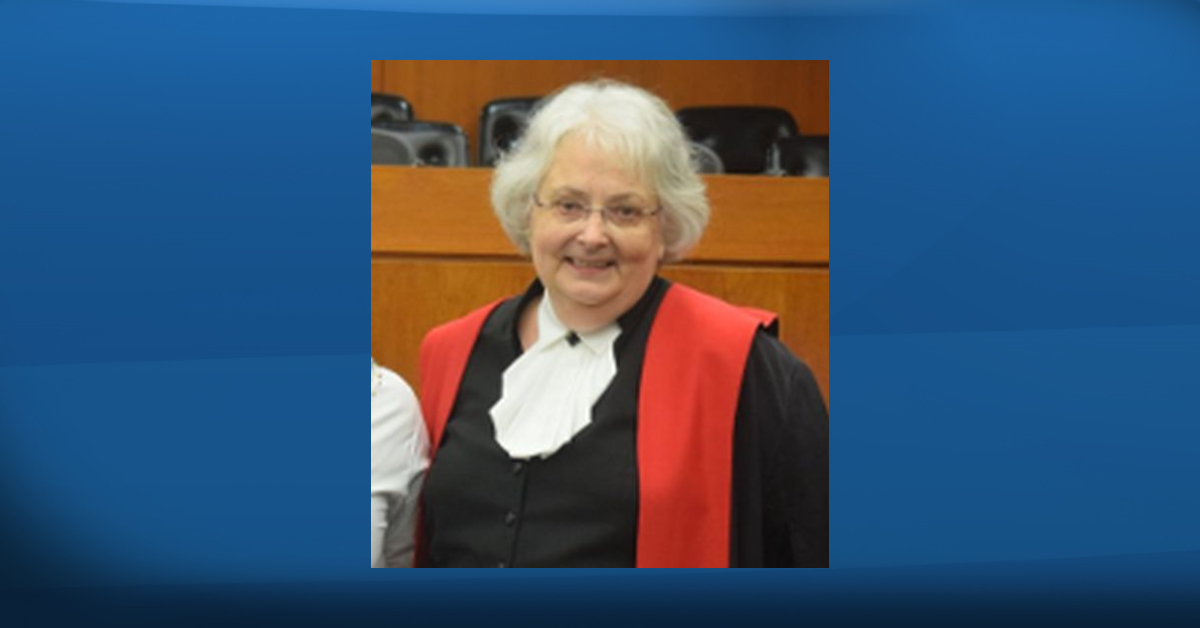The first chief justice in Canada’s largest and youngest territory has died at age 68.

Court officials say Beverley Browne, who was Nunavut’s top judge for 10 years, died Wednesday in Edmonton surrounded by family.
Browne became a judge in the Northwest Territories in 1990 and was appointed chief justice of Nunavut in 1999, the year the territory was founded. She was responsible for building Nunavut’s justice system and establishing Canada’s only single-level trial court.
She also co-founded the Akitsiraq Law School to train Inuit lawyers in Nunavut.
In 2009, she left Nunavut for Alberta, where she served on the Court of Queen’s Bench and helped create Alberta’s Gladue and restorative justice committees. She continued to serve as a deputy judge in Nunavut up until her retirement in February.
In an interview, current Nunavut Chief Justice Neil Sharkey said he first met Browne in Nunavut in 1989, when she was 36. She was someone other judges and lawyers turned to for advice.
“She was always available. She was there for people. You could go to Bev and just put your feet up and stop ruminating about a problem,” Sharkey said.

Get breaking National news
“Her work ethic as well as her community involvement were just inspirational.”
Sharkey said Browne left a legacy for others of “leading by listening.”
“The way that I watched Bev be a leader was inspiration in terms of listening… not to take charge, but to listen. Bev made it look so seamless.”
He also said Browne had been in Iqaluit a few months ago to chair meetings on the revitalization of an elders program at the Nunavut Court of Justice. The program, which she created, allows elders to sit alongside judges during sentencing hearings to speak with offenders.
She represented the “gold standard of judicial community commitment,” Sharkey said.
Browne was also widely known in Iqaluit for her role in the community’s music scene. In 1996, she founded the Iqaluit Music Society, which was recently awarded the $1-million Arctic Inspiration Prize.
Darlene Nuqingaq, who runs the music society, said Browne was “a very dear friend” who cared deeply about teaching music.
“She would get the choruses of many musicals we produced translated into Inuktitut,” Nuqingaq said.
Browne also created a community orchestra in Iqaluit. She played the saxophone and the flute.
“We played at the first opening of Nunavut’s legislative assembly in 1999, even though she had just been sworn in as chief justice at midnight the night before,” Nuqingaq said. “She was tireless in all the things she did.”
Browne, who has two children and six grandchildren who live in Iqaluit, would regularly return to the city and visit with the music community, Nuqingaq added.
“Everybody just loved to see her. She’s been a lifelong friend and mentor. I didn’t think she would be gone so soon.”
Browne also founded and taught a law course at Iqaluit’s high school, Nuqingaq said.
“She was someone that if she saw a need, she would find a way to do it. And if she couldn’t find someone to do it, she would do it herself.”
Chief Justice Mary Moreau of the Court of Queen’s Bench of Alberta said Browne “was a wonderful mentor and support to new justices and an inspiration to us all.”
“She touched us all with her compassion, her down-to-earth approach to problem-solving and her strong desire to improve the court’s relationship with Indigenous communities,” Moreau wrote in a statement.
In Edmonton, Browne was a regular guest at Warrior Program graduation ceremonies at the Stan Daniels Centre and Buffalo Sage Wellness House, two community residential facilities for conditionally released and federally sentenced Indigenous offenders.





Comments
Want to discuss? Please read our Commenting Policy first.